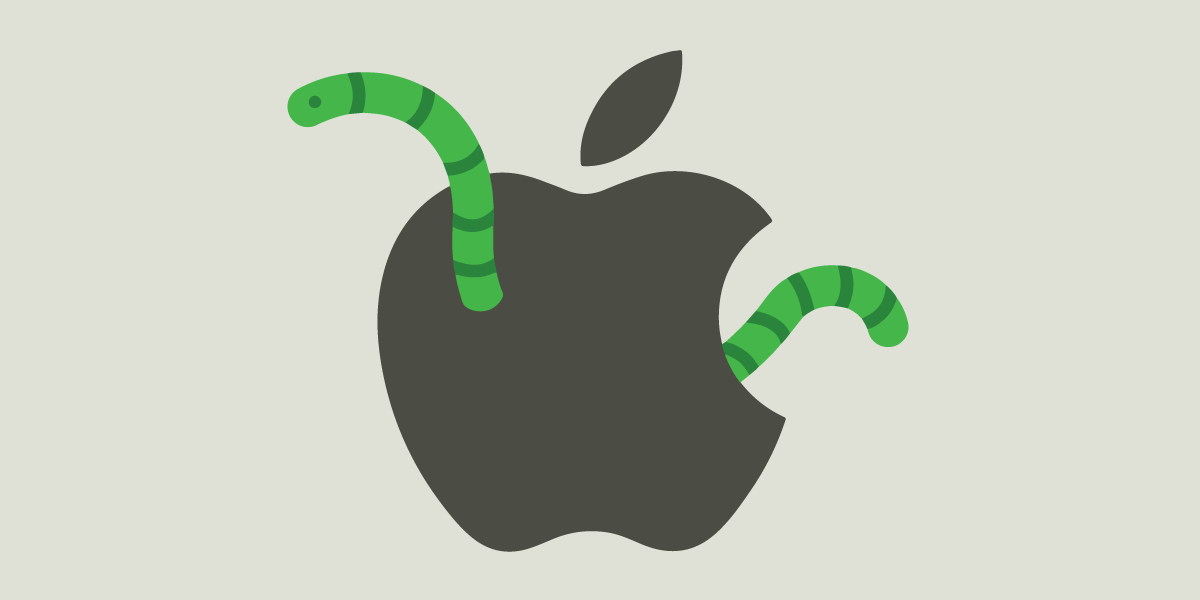| Previous
Page |
PCLinuxOS
Magazine |
PCLinuxOS |
Article List |
Disclaimer |
Next Page |
Facebook Says Apple Is Too Powerful. They're Right |
|
by Cory Doctorow  In December, 2020, Apple did something insanely great. They changed how iOS, their mobile operating system, handled users' privacy preferences, so that owners of iPhones and other iOS devices could indicate that they don't want to be tracked by any of the apps on their devices. If they did, Apple would block those apps from harvesting users' data. This made Facebook really, really mad. It's not hard to see why! Nearly all iOS users opted out of tracking. Without that tracking, Facebook could no longer build the nonconsensual behavioral dossiers that are its stock-in-trade. According to Facebook, empowering Apple's users to opt out of tracking cost the company $10,000,000,000 in the first year, with more losses to come after that. Facebook really pulled out the stops in its bid to get those billions back. The company bombarded its users with messages begging them to turn tracking back on. It threatened an antitrust suit against Apple. It got small businesses to defend user-tracking, claiming that when a giant corporation spies on billions of people, that's a form of small business development. For years, Facebook - and the surveillance advertising industry - have insisted that people actually like targeted ads, because all that surveillance produces ads that are "relevant" and "interesting." The basis for this claim? People used Facebook and visited websites that had ads on them, so they must enjoy targeted ads.  Unfortunately, reality has an anti-surveillance bias. Long before Apple offered its users a meaningful choice about whether they wanted to be spied on, hundreds of millions of web-users had installed ad-blockers (and tracker-blockers, like our own Privacy Badger), in what amounts to the largest consumer boycott in history. If those teeming millions value ad-targeting, they've sure got a funny way of showing it. Time and again, when internet users are given the choice of whether or not to be spied on, they choose not. Apple gave its customers that choice, and for that we should be truly grateful. And yet…Facebook's got a point. When "users" are "hostages" In Facebook's comments to the National Telecommunications and Information Administration's "Developing a Report on Competition in the Mobile App Ecosystem" docket, Facebook laments Apple's ability to override its customers' choices about which apps they want to run. iOS devices like the iPhone use technological countermeasures to block "sideloading" (installing an app directly, without downloading it from Apple's App Store) and to prevent third parties from offering alternative app stores. This is the subject of ongoing legislation on both sides of the Atlantic. In the USA, The Open App Markets Act would force Apple to get out of the way of customers who want to use third party app stores and apps; in the EU, the Digital Markets Act contains similar provisions. Some app makers, upset with the commercial requirements Apple imposes on the companies that sell through its App Store, have sued Apple for abusing its monopoly power. Fights over what goes in the App Store usually focus on the commissions that Apple extracts from its software vendors - historically, these were 30 percent, though recently some vendors have been moved into a discounted 15 percent tier. That's understandable: lots of businesses operate on margins that make paying a 30 percent (or even 15 percent) commission untenable. For example, the retail discount for sellers of wholesale audiobooks - which compete with Apple's iBooks platform - is 20 percent. That means that selling audiobooks on Apple's platform is a money-losing proposition unless you're Apple or its preferred partner, the market-dominating Amazon subsidiary Audible. Audiobook stores with iPhone apps have to use bizarre workarounds, like forcing users to login to their websites using a browser to buy their books, then go back to their phones and use their app to download their books. That means that Apple doesn't just control which apps its mobile customers can use; it also has near-total control over which literary works they can listen to. Apple may have not set out to control its customers' reading habits, but having attained it, it jealously guards that control. When Apple's customers express interest in using rival app stores, Apple goes to extraordinary technical and legal lengths to prevent them from doing so. The iOS business model is based on selling hardware and collecting commissions on apps. Facebook's charges that these two factors combine to impose high "switching costs" on Apple's customers. "Switching costs" is the economist's term for all the things you have to give up when you change loyalties from one company to another. In the case of iOS, switching to a rival mobile device doesn't just entail the cost of buying a new phone, but also buying new apps: [F]ee-based apps often require switching consumers to repurchase apps, forfeit in-app purchases or subscriptions, or expend time and effort canceling current subscriptions and establishing new ones. Facebook is right. Apple's restrictions on third-party browsers, and the limitations it puts on Safari/WebKit (its own browser tools) have hobbled "web apps," which run seamlessly inside a browser. This means that app makers can't deliver a single, browser-based app that works on all tablets and phones - they have to pay to develop separate apps for each mobile platform. That also means that app users can't just switch from one platform to another and access all their apps by typing a URL into a browser of their choice. Facebook is very well situated to comment on how high switching costs can lock users into a service they don't like very much, because, as much as they dislike that platform, the costs of using it are outstripped by the costs the company imposes on users who leave. That's how Facebook operates. Facebook has devoted substantial engineering effort to keeping its switching costs as high as possible. In internal memos - published by the FTC - the company's executives, project managers and engineers frankly discuss plans to design Facebook's services so that users who leave for a rival pay as high a price as possible. Facebook is fully committed to ensuring that deleting your account means leaving behind the friends, family, communities and customers who stay. So when Facebook points out that Apple is using switching costs to take its users hostage, they know what they're talking about. Benevolent Dictators Are Still Dictators Facebook's argument is that when Apple's users disagree with Apple, user choice should trump corporate preference. If users want to use an app that Apple dislikes, they should be able to choose that app. If users want to leave Apple behind and go to a rival, Apple shouldn't be allowed to lock them in with high switching costs. Facebook's right. Apple's App Tracking Transparency program - the company's name for the change to iOS that let you block apps from spying on you - was based on the idea that when you disagree with Facebook (or other surveillance-tech companies), your choice should trump their corporate preferences. If you want to use an app without being spied on, you should be able to choose that. If you want to quit Facebook and go to a rival, Facebook shouldn't be able to lock you in with high switching costs. It's great when Apple chooses to defend your privacy. Indeed, you should demand nothing less. But if Apple chooses not to defend your privacy, you should have the right to override the company's choice. Facebook spied on iOS users for more than a decade before App Tracking Transparency, after all. Like Facebook - and Google, and other companies - Apple tolerates a lot of surveillance on its platform. In spring of 2021, Apple and Google kicked some of the worst location-data brokers out of their app stores - but left plenty behind to spy on your movements and sell them to third parties. The problem with iOS isn't that Apple operates an App Store - it's that Apple prevents others from offering competing app stores. If you like Apple's decisions about which apps you should be able to use, that's great! But that's a system that only works well - and fails badly. No matter how much you trust Apple's judgments today, there's no guarantee that you'll feel that way tomorrow. After all, Apple's editorial choices are, and always have been driven by a mix of wanting to deliver a quality experience to its users, and wanting to deliver profits to its shareholders. The inability of iOS users to switch to a rival app store means that Apple has more leeway to take down apps its users like without losing customers over it. The US Congress is wrestling with this issue, as are the courts, and one of the solutions they've proposed is to order Apple to carry apps it doesn't like in its App Store. This isn't how we'd do it. There are lots of ways that forcing Apple to publish software it objects to can go wrong. The US government has an ugly habit of ordering Apple to sabotage the encryption its users depend on. But Apple also sometimes decides to sabotage its encryption, in ways that expose its customers to terrible risk. Like Facebook, Apple makes a big deal out of those times where it really does stick up for its users - but like Facebook, Apple insists that when it chooses to sell those users out, they shouldn't be able to help themselves. As far as Apple -and Facebook, and Google, and other large tech companies - are concerned, we're entitled to just as much privacy as they want to give us, and no more. That's not enough. Facebook is right that users should be able to choose app stores other than Apple, and Apple is wrong to claim that users who are given this choice will be exposed to predatory and invasive apps. Apple's objections imply that its often fantastic privacy choices can't possibly be improved upon. That's categorically wrong. There's lots of room for improvement, especially in a mass-market product that can't possibly cater to all the specific, individual needs of billions of users. Apple is right, too. Facebook users shouldn't have to opt into spying to use Facebook. The rights of users shouldn't be left to the discretion of corporate boardrooms. Rather than waiting for Apple (or even Facebook) to stand up for their users, the public deserves a legally enforceable right to privacy, one that applies to Facebook and Apple…and the small companies that might pop up to offer alternative app stores or user interfaces. |




